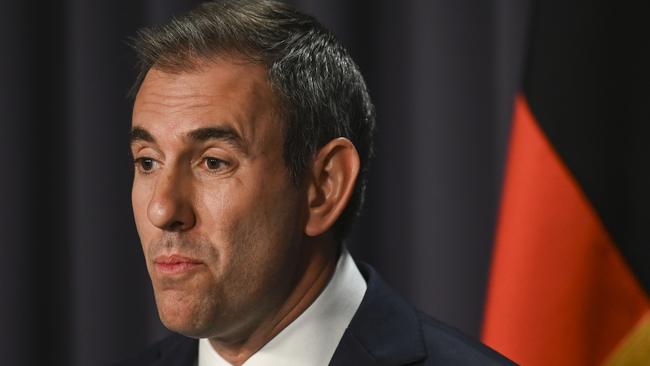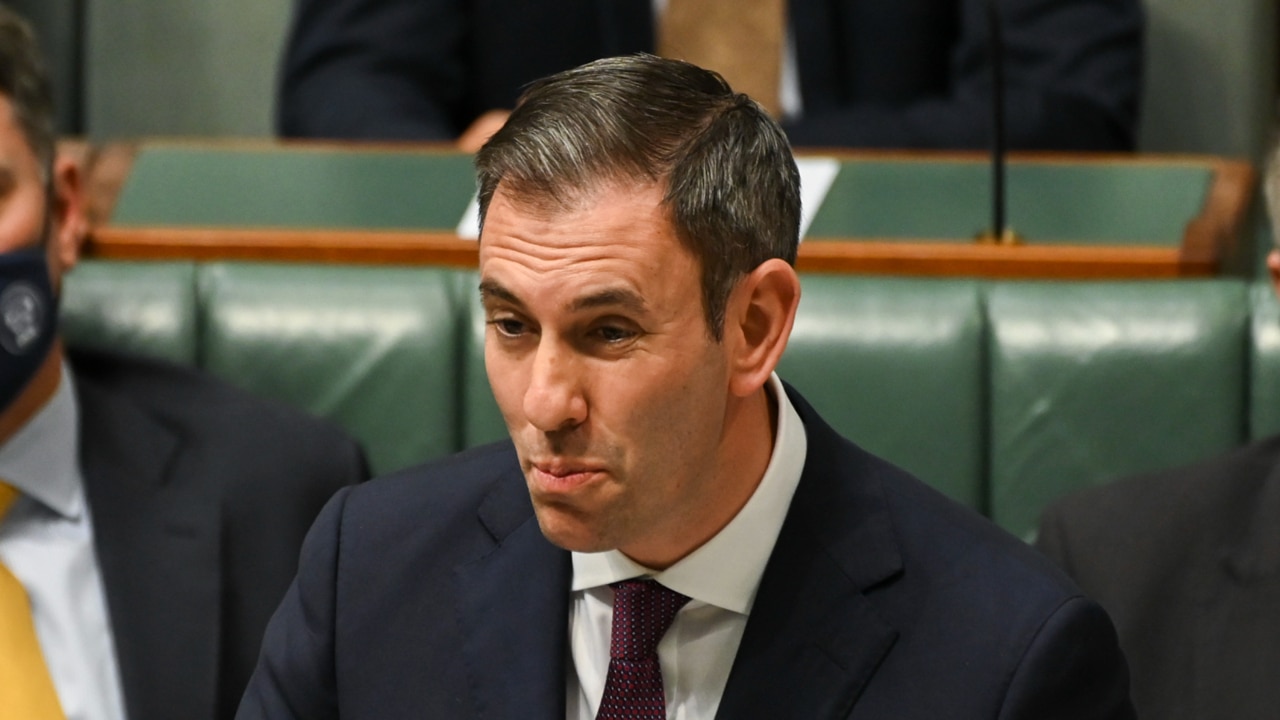
Governments wanting to preserve electoral margins rarely decide to have big political battles over small budget savings unless there is a hidden political motive.
This raises a central question: why is the government pursuing this with a resolve that shortchanges the fiscal dividend, which as the Treasurer admits, is only in the order of $1bn a year?
While Treasury needs to find savings everywhere, considering the size of the task it helped create, going after self-managed super funds is low hanging and forbidden fruit, given the government pledged before the election not to touch super.
As a rule of thumb, a sense of proportionality should ordinarily be applied to policy that takes into account the political capital a government is willing to exhaust on an issue, particularly one with inherent difficulties that may be compounded by accusations of a broken promise.
In the context of what Chalmers is suggesting, the economic case doesn’t stack up when political risk is factored in. Or perhaps the Treasurer thinks it does. Self-managed super funds are not Labor’s people.

Ideology rather than fiscal urgency would appear to be driving the debate on Labor’s side.
As history has proven, this is not election-winning stuff. The maturity of a nation measured by the electorate’s ability to digest concepts of equity can be largely determined by the general level of trust in government.
Chalmers has activated this debate with the whiff of class war politics that Albanese promised the Labor Party was done with.
The subtext of the proposition is a further redefining by Labor of government’s role – a cradle to the grave model, or “estate planning” versus state planning.
The Coalition would argue this is a demonisation of aspiration.
One lesson of the 2019 election for Labor was surely the collective rejection of class envy as a political weapon. While there is certainly sympathy for the case that tax concessions for super balances of more than $3m begin to look a little perverse, what Labor is proposing risks injecting the reverse effect of certainty and stability into the system.
For a Labor government to maintain a convincing polemic, it must surely be considering extending the same principle to the defined benefits schemes of the thousands of public servants – including those few politicians whose taxpayer-funded equivalent super balances on retirement would be worth more than $3m.
The unfunded super liability for government-funded defined benefits schemes is more than $300bn. The valuation methodology for these schemes is 16 times annuity. In other words, the super lump sum equivalent for senior public servants on salaries approaching half a million dollars will be beyond the $3m cap Chalmers is proposing. And there are plenty of them.

Albanese last week took exception to the suggestion he would be on a lifetime pension of $400,000 a year when he quits politics. To be generous, let’s assume he’s on $300,000 a year. Even based on the formula, his valuation (super lump sum equivalent) would be $4.8m.
Is the Prime Minister proposing his fully taxpayer-funded pension should be capped also?
Only a few politicians would be captured under this but plenty of senior public servants.
Capping the government-funded defined benefits schemes at $3m might arguably save more than $1bn a year – yet neither Chalmers nor Assistant Treasurer Stephen Jones has thrown this into the mix when setting out why private sector investors at the top end should be targeted.
Such a move would spark a war with public sector unions.
The debate over hypocrisy extends both ways.
Few in the Liberal Party would look back on the 2016 decision to rein in tax concessions based on income and remember it fondly.
Even Scott Morrison, treasurer at the time, would probably concede it was a big political mistake. It won’t be repeated by the Coalition.
Chalmers is one of the governments’ best communicators but constant kite-flying risks undermining his effectiveness. He may not be necessarily wrong to pursue the argument but so far he wouldn’t appear to be winning it.
And if he harbours ambitions, he will need to be careful not to become the “landmine detector” for cabinet on issues such as this.








Anthony Albanese and Jim Chalmers are determined to have a fight over the future of superannuation. And Peter Dutton is happy to give them one.